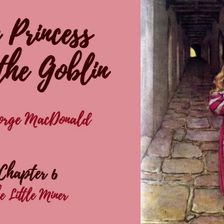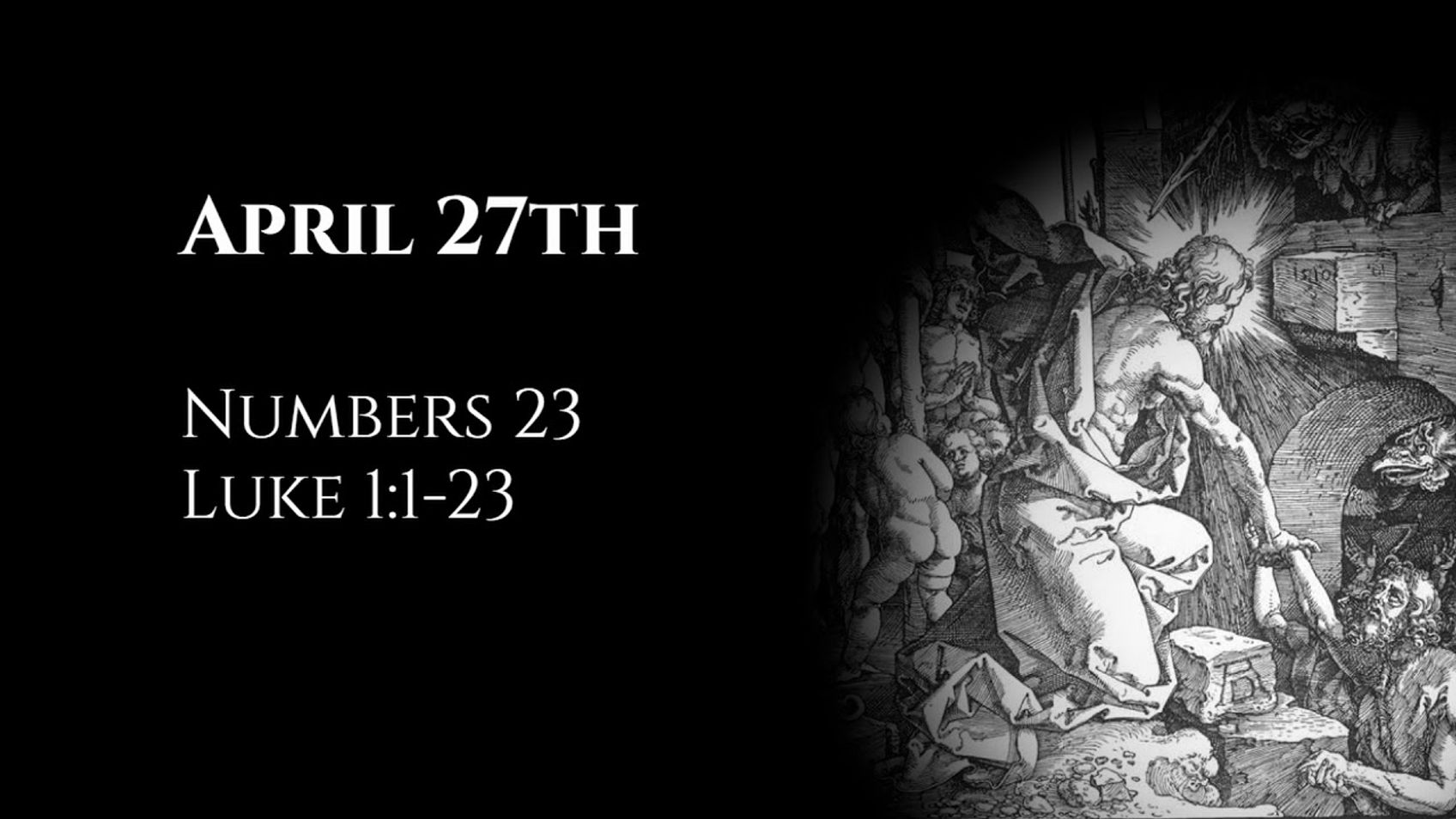April 27th: Numbers 23 & Luke 1:1-23

Balaam's first two oracles. The annunciation of the birth of John the Baptist.
Some passages referenced:
Genesis 13:16 (the multiplication of Abraham’s offspring); Genesis 12:1-3 (Abraham being made a blessing); Joshua 2:9-11 (the reputation of the Lord to the nations through Israel); Genesis 49:9 (blessing upon Judah).
Acts 11:4 (telling an ordered account); Genesis 16:11-12, 17:15-21, Judges 13:2-5 (Old Testament annunciations); Exodus 1—2, 1 Samuel 1—2 (stories of new birth); Exodus 6:23 (Elisheba); Daniel 8:16, 9:21 (Gabriel); Exodus 30:7-8 (the duty of incense); Psalm 141:2 (incense and prayer); Daniel 9:20-23 (evening sacrifice and prayer in Daniel); Nehemiah 12:22-23, 2 Kings 25:22-26, Jeremiah 42:1—43:7 (Johanans); Numbers 6:1-21 (law of the Nazirite); Judges 13:4-6, 1 Samuel 1:11 (Nazirites); Malachi 4:5-6 (Elijah to come); Genesis 17:17, 15:8 (Abraham’s questions to the Lord).
Reflections upon the readings from the ACNA Book of Common Prayer (http://bcp2019.anglicanchurch.net/).
If you have enjoyed my output, please tell your friends. If you are interested in supporting my videos and podcasts and my research more generally, please consider supporting my work on Patreon (https://www.patreon.com/zugzwanged), using my PayPal account (https://bit.ly/2RLaUcB), or by buying books for my research on Amazon (https://www.amazon.co.uk/hz/wishlist/ls/36WVSWCK4X33O?ref_=wl_share).
The audio of all of my videos is available on my Soundcloud account: https://soundcloud.com/alastairadversaria. You can also listen to the audio of these episodes on iTunes: https://itunes.apple.com/gb/podcast/alastairs-adversaria/id1416351035?mt=2.
More From Alastair Roberts






More on OpenTheo















